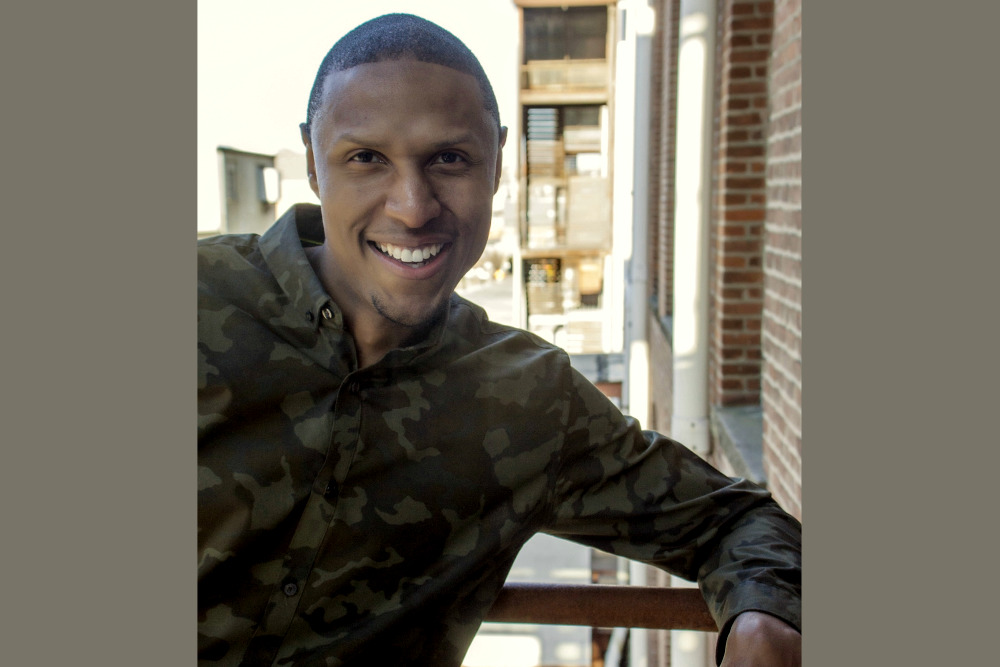President Biden’s $1.2 trillion infrastructure bill finally passed after months of negotiations, and while there are plenty of positives in the new legislation, youth advocate Sadiq Ali is still smarting over the elimination of tuition-free community college from the original draft.
Ali saw this plank of the proposal as an essential policy for propelling young people toward higher education and better careers.
“Everyone talks about investing in young people, and what’s the first thing that got cut from the Build Back Better plan? Free community college,” Ali said. “Say what you want about Biden — he’s socialist or whatever — that was materially an investment in young people.”
Ali wears many hats in the youth development field. He’s a coach, keynote speaker, author, and for the past three years, he has been the executive director of Maryland MENTOR, an affiliate of the nationwide youth mentoring advocacy organization. He self-published a book, Millionaire Manners, in 2014 about relationship building, etiquette and leadership for young men of color.
His road to youth development and mentorship began in retail, during his eight years at Target, where he went from assistant manager to store manager to general manager. He was charged with hiring and managing a workforce made up primarily of young people, most of whom were young people of color, he said. He and his team took pride in hiring employees who might not fit the traditional mold. They might not dress in “interview clothes,” couldn’t articulate their experience and skills well and their background wasn’t perfect, he said. He made it a point to ask applicants probing questions and regularly took chances on young people. And, according to Ali, some of them turned out to be the store’s most dedicated and loyal employees.
“Those are the moments that underscored this idea that there’s a tremendous amount of work to do outside of Target’s four walls,” he said.
Ali has taken those mentorship skills and made a career out of them. Youth Today spoke with him about mentorship, the importance of relationships and his greatest pet peeve.
The conversation
Hi Sadiq, can you begin by telling us what is MENTOR and what you do there?
I lead the Maryland and D.C. regional affiliate of MENTOR, formerly known as the National Mentoring Partnership. Our shared mission is all about increasing the quality and quantity of mentoring relationships and working to close the mentoring gap — 1 out of every 3 young people will grow up essentially never having been in a formal mentoring relationship. For communities of color, that number is 2 out of 3.
Does MENTOR provide direct mentoring services?
We don’t run programs or fund programs. MENTOR is the country’s largest advocacy, public awareness and research-oriented organization about all-things mentoring.
We act as indirect service providers in the mentoring field. We make sure mentoring programs have what they need to do high-quality work with young people: Supporting them with implementing best practices, technical assistance, mentor recruitment and a host of stuff like that. The easiest way to think of us is as mentors, if you will, to the mentoring programs.
How does mentoring fit into the afterschool, out-of-school-time (OST) space?
That’s a good question and sort of one of our running jokes around here. If you have a mentoring program and it’s happening after school, is it a mentoring program or is it an afterschool or OST program? If mentoring is happening during the summer, is that a summer program, or is it a mentoring program, or is it a summer OST program? The answer is, well, all of the above.
From a mentoring perspective, your traditional OST programs can do a bit more to incorporate relationships and some of that rapport-building aspect. And then some of our mentoring programs can add in a bit more of the rigor that we typically associate with your more traditional OST or afterschool programs. The reality is that both of these sorts of sub-sectors of youth development can learn a great deal from each other.
How does mentoring help kids?
At the philosophical level, mentoring is about being present for young people in a variety of settings. Mentoring has sort of become this catch-all term. But for us, at the end of the day, mentoring is all about building relationships. And relationships are rocket fuel for every other youth outcome that we’re after. To get to where I am today, I had a mentor.
There are basically two types of mentorship: formal and informal. We focus on formal, structured mentorships. But informal is also very important. The majority of mentoring and youth development programming happens in these sorts of informal spaces, the most common being in sports. Many of us interact with young people every single day and don’t think twice about it. We don’t always notice the power or the opportunity that we have, or how we can negatively impact a young person by just a passing word, or ignoring a young person.
We think in these non-traditional spaces, this is where we have such a huge opportunity across the country to really get folks writ large to adopt what we like to call a “mentoring mindset.”
On your LinkedIn profile, instead of listing your current position, you pose a question: “What in the world have you done to support a young person today?” I take it that your pet peeve is when people complain but don’t offer any solutions. Is that right?
It’s my super pet peeve. In Baltimore, we have groups of young people what we call squeegee boys. These are young men who are on the corners with squeegees and bottles of window cleaning solution asking if they can clean car windows for money. It’s essentially one level up from panhandling. I use the squeegee kids as an example because so many folks here in Baltimore are just always up-in-arms about them: “Oh, man, we got to do something about the squeegee kids,” they complain. But they don’t get that the squeegee kids are a symptom of larger issues.
So I challenge this — what kind word do you have for the young squeegee boys? What word of encouragement do you have? How many internships is your company offering? There is this quote that goes something like, “Either we will profit by or perish by what we invest in young people.”
The whole idea of “What in the world have you done to support a young person today?” is really both an actual as well as a rhetorical question. There is so much that folks can do that doesn’t even take that much time or effort or money, but that could potentially have a profound impact.
The details
Title: Executive director MENTOR, Maryland and Washington D.C.
Residence: Baltimore
Hobbies: Motorcycle riding, nature hikes with family, basketball, reading
Latest book: “Hold On to Your Kids: Why Parents Need to Matter More Than Peers” by Gordon Neufeld and Gabor Maté
Other employment: Founder of Millionaire Manners Academy, speaker, confident coach, author
Prior employment: Adjunct professor, Coppin State University; general manager Target
Volunteer work: Community mediator, Commission for Service and Volunteerism for the State of Maryland
Education: Bachelor’s in business management from Morgan State University; master of business administration from University of Maryland Global Campus




























